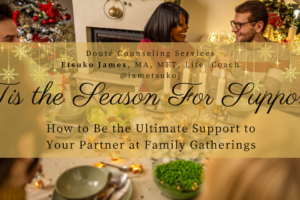While we argue with others, there is one common thought we are all having. This is “I am right and you are wrong.” Many times, this belief is an insurmountable barrier to ever coming to an agreement. Our desire to have our side heard and understood as “the truth” has us thinking about our next comeback rather than listening to the other person, and that is a war no one wins. These arguments can be just that….war zones….as shots are fired until one person is broken down and/or retreats and no resolution is reached. Sound familiar? We can probably all relate to that frustration.
Well guess what?
You were right all along. And so was the person you argued with! Your version of the situation is correct, as you experienced it, and so it is with the person with whom you argued.
Where does that get us, you ask?
Understanding the significance of perception can be a gamechanger for your relationships and your ability to actually make progress through even the most difficult discussions–rather than defaulting to “sweeping under the rug.” Relationships can be transformed when partners (or family members, friends, coworkers, you name it) can recognize their emotions overtaking the conversation and take a step back to view the situation from the other’s perspective. Rather than telling someone else how to feel based on our experience, we can first try to understand how they have perceived the same scenario differently. Listening to understand, not defend, is the first step toward having the communication you’ve always desired in your relationships.
Acknowledging someone else’s perspective does NOT necessarily equal agreeing with them, but it does start a dialogue rather than a fruitless debate. This opens all involved to potentially learning something new versus the shutdown that often occurs when we’re feeling attacked.
Easier said than done—I hear you!
Of course, listening first is not something that comes naturally to most of us. It is a skill that must be practiced. However, a good starting point is finding one aspect of an alternative experience that you can relate to, communicating that, and allowing the conversation to transform. Listening to understand always trumps listening to respond and, while it may seem like relinquishing power in the moment, it actually increases our ability to be heard and understood as well. Isn’t that what we all ultimately want?
If this sounds all too familiar and you are tired of going in circles when trying to communicate, schedule a therapeutic session with Julie Johnston using the link below. These skills can benefit almost every aspect of your life. Your future self (and relationships) will thank you…and that can be one more thing you were right about.
https://DouteCounselingServices.as.me/JulieJohnston






You must be logged in to post a comment.